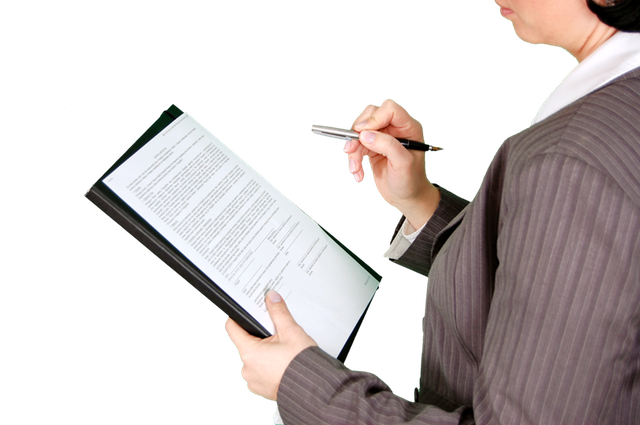Perfecting Your Interview Self-Introduction: Tips & Examples for Success
When it comes to introducing yourself in an interview, it can feel like you're walking a fine line between confidence and humility.
I know how nerve-wracking it can be to find the right balance. You want to make a strong first impression while staying authentic.
In this post, I'll walk you through tips and examples that have worked for me and others, so you can perfect your self-introduction and set the tone for a successful interview.
Mastering your self-introduction is crucial for interview success, especially in the competitive medical sales field. But if you're instead looking for a detailed example tailored to medical sales reps self introduction when making a sales call, visit this article on self-introduction for medical sales representatives.
Let's get back to our main subject...
1. Crafting an Effective Self Introduction for MR (Job) Interview
When I’m preparing for a medical representative interview, I know that a well-structured self-introduction is crucial to making a strong impression.
But how do I create one that stands out?
It’s all about keeping it
relevant, brief, and engaging. I focus on highlighting my skills, achievements,
and what makes me the right fit for the role. By doing this, I can confidently
introduce myself and set the tone for the rest of the interview.
I'm sharing a few examples below. Don't take it verbatim (even tough it might help). Improvised to suits them to your context and situation.
1.1 Self-Intro Example 1 (with Experience)
"Good morning, my name is John Doe.
I am a dedicated pharmaceutical sales professional with over five years of experience in the healthcare industry. I am passionate about improving patient care through the promotion of effective medications.
I hold a Bachelor's degree in Pharmacy, which equips me with a solid understanding of the medical jargon that's essential in conversations with healthcare providers.
In my previous role at PharmaHeal, I was recognized as the 'Top Salesperson' for three consecutive quarters. I excelled in developing relationships with healthcare providers, demonstrating my strong interpersonal skills and persuasive abilities.
I am particularly drawn to this role at your esteemed organization due to its commitment to innovation and high-quality patient care.
I believe my skills, coupled with my passion for the pharma industry, make me an excellent fit for the medical representative role here. I am confident that I can contribute positively to the team and help achieve the company's goals."
1.2 Self-Introduction Example 2 (non-PSR Experience)
1.2.1 With Degree
"Good morning, I’m Jane Smith, and I have a degree in
Life Sciences with a strong interest in the pharmaceutical industry. While I’m
new to the medical representative role, my background in customer support and
retail has equipped me with essential skills like communication and
problem-solving. At TechHelp, I explained complex information to clients, and
in retail, I exceeded sales targets through building relationships. I’m excited
to apply these skills in promoting healthcare products and making a positive
impact in this field."
1.2.2 Non-degree Candidate
"Good morning, I’m Jane Smith. While I don’t have a
formal degree, my hands-on experience in customer service and sales has
prepared me well for a role in pharmaceutical sales. In my previous role at
TechHelp, I explained complex issues in simple terms, a skill that’s valuable
when communicating with healthcare professionals. I consistently exceeded sales
targets in retail through understanding customer needs and building strong
relationships. I’m excited to apply these skills and contribute to your team as
a Medical Representative."
2. Perfecting Your Self Introduction Sample for Medical Representative
Preparing a self introduction sample for medical representative interviews in advance can make a world of difference.
Practice this until you sound natural and conversational. Include your professional background, highlight any specialized training, and emphasize your people skills - all key traits for a successful medical representative.
"Hi, my name is [Your Name], and I’ve been working in sales for the past [X] years. I’m passionate about the medical field, particularly in helping healthcare professionals find the right solutions for their patients. In my previous role with [Company], I managed [specific product] accounts, where I developed strong relationships with doctors and pharmacists. What I find rewarding is how our products can make a real difference. I’m excited about the opportunity to bring my experience and enthusiasm to your team."
You can also refer to Section 1 above where I've provided you with some examples for candidate with experience, without experience, and also with and without a degree.
2.1 Introduce Yourself in an Interview with Confidence
Introducing yourself in an interview can feel nerve-wracking, even for experienced professionals.
But the key to overcoming
this anxiety is preparation.
Start by practicing your self-introduction until it feels natural. Know your CV inside and out, and be ready to emphasize the experiences and skills most relevant to the job you're applying for. Express genuine enthusiasm for the role and the company, showing how eager you are to contribute to their success. Confidence comes from being prepared and clear about your value.
2.2 My Best Self-Introduction for a Medical Representative Interview
"Good morning, I’m [Your Name]. I’ve spent the last few years in customer service and sales, where I’ve developed strong communication and problem-solving skills that I’m eager to bring to the medical field. My ability to build relationships and meet targets consistently has earned me recognition, and I’m excited to apply that in promoting products that make a real impact on patients' lives. I’m confident that my passion for healthcare and my drive to succeed make me a great fit for this Medical Representative role."
2.3 Self Introduction for MR Job: Key Elements to Consider
When crafting your self-introduction for a Medical Representative interview, make sure to highlight four key elements:
- Your relevant qualifications
- Your enthusiasm for the pharmaceutical industry
- Your proven sales abilities
- And how your skill set directly matches the job description.
Start by briefly discussing your background, then focus on your passion for healthcare and patient impact. Highlight any sales achievements and close by explaining how these experiences make you the ideal candidate to drive results in the MR role. This approach helps position you as a valuable asset to the company.
3. How to Present Myself in an Interview? Let Your Personality Shine Through
When you're thinking about how to present myself in an interview, keep in mind that the interviewers are not just assessing your technical skills. They're also looking for a glimpse into your personality. Be authentic, maintain eye contact, and express enthusiasm for the role and the company.
3.1 Introducing Yourself As a Representative: Show Them What You've Got
The key to introducing yourself as a representative is to focus on your strengths and achievements, and how these relate to the role. Explain how you have used your skills in previous roles to meet targets, solve problems, and contribute to team success.
3.2 One of The Best Ways to Make the Self-Introduction
Wondering about the best way to make an intro in an interview?
Remember...
Keep it professional, be concise, and always relate your skills and experiences to the job at hand. Highlight why you are a unique fit for the position, and how your previous experiences have prepared you for the role.
The art of self-introduction in a medical representative interview is all about showcasing your strengths, experiences, and your unique selling proposition.
The way I see it, confidence is key but authenticity wins the game.
I believe it's beneficial to show them you're not just a perfect fit for the role, but also a valuable addition to their team. With the right preparation, your self-introduction can become your secret weapon to land that dream medical representative job.
I want to leave you with something that can help you to better prepare for your medical sales job interview, such as background information on what the job is about, etc. If you think you need more info on any aspect of the job, leave your query in the comment box below ya.
Maybe others can benefit from it too.
First off...
4. What Is Medical Representative and What They Do?
As a medical representative, it is your task to inform and convince healthcare providers (HCPs) to prescribe medications. You must also ensure that the products are available at the pharmacy, distributor, or wholesaler.
In addition, you must also have a good understanding of the patient's condition and the limits they have as patient.
The main tasks of a medical sales representative include:
- making presentations
- identifying potential customers
- organizing events for medical staff
- maintaining contact databases
- ensuring sales targets are met
- managing budgets
- assist in conducting market research
- writing reports to managers
- and reviewing sales performance
These are some of the tasks you can found in a typical medical sales rep JD (job description).
If you can, try to arrange some time to shadow a medical rep
on visits to doctors or local pharmacies. This experience will give you
valuable insights into the realities of the job before you dive into the
profession. Shadowing helps you see firsthand what being a medical sales rep is
all about.
As an MR, it’s important to stay informed about pharmaceutical drugs and the healthcare landscape. Do your homework on the pharmaceutical industry and keep up with the latest developments, especially within the NHS.
When I think about the role of a medical rep, it’s clear that our job is to introduce healthcare professionals—whether they’re doctors, nurses, or pharmacists—to the products our company offers. We act as the bridge between the pharmaceutical company and those who prescribe or recommend treatments.
The main goal?
To sell the company’s pharmaceutical products.
But it’s not just about numbers—building relationships with doctors and healthcare providers is key. By doing so, we help drive new product awareness and ensure doctors stay informed about the latest treatments. This is how we increase not just product sales but also the positive impact on patient care.
Medical reps are responsible for promoting a wide range of products, from prescription drugs to medical devices. We work with various customers, including doctors, hospitals, and healthcare associations, ensuring that they understand the benefits of our products.
In this role, you’ll be working strategically to increase sales in your specific geographic area and within your product specialty. It's essential to come prepared for your MR interview by understanding key medical topics, as well as frequently asked questions related to the industry.
During your interview, focus on how you’ll promote and sell the company's products. Be prepared to talk about how you’ll secure appointments with doctors, promote pharmaceutical drugs, and maintain consistency in your approach. It's all about showing that you're knowledgeable and confident in what you do.
5. Extra Tips on How to Introduce Yourself In A Job Interview
You’ve put in the effort to find the job, and now you've
landed an interview. Whether it’s your first or you're hoping to make it to the
next round, you want to make a great impression.
The introduction is always the first step in any interview. It’s important not just to know what to say but also what to avoid.
I’ll cover what you should do in a moment, but it's just as important to know what not to say and how to avoid common mistakes.
Now, let’s dive into some key points:
- Be confident
- Be relevant
- Be consistent
5.1 How to be confident during the interview?
Industry experts have outlined far too many ways and tips for you to remember. You can choose to Google them up.
Or, you can just stick to a few practical ones, such as:
i) Act "as if." Pretend that you are a confident person. Perhaps, someone you know. And be that person for a moment. Act out the way they sit, talk, gestures. You will be confident!
ii) Autosuggestion. It's the "oldest" trick in the book. But the science behind it is reliable. Cook a highly positive pep talk, e.g., "I'm getting closer to get this job. I'm handling the interview session effectively."
iii) Practice breath control. We tend to breathe shallow and fast under stress. When we change the pattern of breathing, the feeling change. You got to test it to believe it.
5.2 Make your self-introduction relevant
When we go for an interview, we bring our unique education and experience to the interview table.
I'd say that it's your job to make what you bring along matters to the interviewer.
5.2.1 How to make your interview intro relevant to the job you're going after?
You make a connection.
For example, if your self-introduction for your interview tomorrow sounds something like:
"I study communication in college" ...
Don't just stop there.
It's one of those 'insufficient interview introduction.' Make a connection between your study and the function for the post you're applying.
Add on with something, like:
"I've learned the kind of words that attract people's attention. They can be used in speech or writing!"
See the difference?
You got to sell "you" during your self-introduction in an interview. No other person can carry such a huge task better than you.
YOU can do it!
5.3 Why you need to be consistent especially during the introduction?
Consistency shows attention to detail.
It shows that you're aware of what you do and say:
- Be consistent in giving examples
- Be consistent in upholding your values
- Be consistent with what you want from the interview.
And pay close attention to how you introduce yourself in interviews.
I'm not kidding.
Research has shown that the impression is created in the first 4 seconds of an interaction. You want to develop a strong and lasting first impression during your interview introduction.
Many people think that consistency is one way.
Wrong!
In an interview, whether you're making an introduction or answering interview questions from your interviewers who could be from the Human Resource (HR) Department, consistency is two ways. You need to be aligned (interviewer and interviewee) at all times.
Not being congruent is a red flag.
TIP: A quick practice is a great help. You can do it alone in front of a mirror, or find a partner.
Another TIP: Approach each interview session with a "ready to learn" attitude. If you didn't make it through, take it as a lesson. You'll be unstoppable for the next round!
5.4 In short
There are no absolute "best ways" to make an introduction during the interview, but there are general concepts on how you should introduce yourself at a job interview.
As we've mentioned above, during your self-introduction or answering interview questions, you need to be confident, relevant, and consistent. These help you win any interviews you're sitting in, today, tomorrow, or years to come.
Sidenote: Introducing Yourself as a Doctor in an Interview
So, you’re a doctor walking into an interview...
First of all, congrats!
Now, let’s talk about how you can introduce yourself in a way that sets the right tone from the start. The key here is to balance your qualifications with a bit of personality. You want to sound confident but not overly formal or stuffy.
Start with the basics:
“Hi, I’m Dr. [Your Name]. I’ve been practicing in [specialty] for [X years] and have had the opportunity to work with a diverse range of patients and cases.” Then, follow it up with what drives you: “What really motivates me is making a difference in my patients’ lives, whether it's through direct care or finding innovative solutions for complex medical conditions.”
Don’t just focus on the technical—inject a bit of who you are. Maybe mention a specific aspect of your work that excites you or a project you’re particularly proud of. The goal is to leave them thinking, “This person is not only highly qualified but also passionate and approachable.”
6. Introduce Yourself During Interview: My Personal Example
I had been to several interviews. I landed the job I was after with some, and walk away with lessons from others. But those that I didn't manage to get a job, there were stories behind them.
I'll save them for another day.
Out of those few interviews which I succeeded, I still remember the kind of introduction I made.
And you know why?
I never once "scripted" my intro.
In fact, I would just go in and start "responding."
You see, it's pretty rare to attend an interview and been allowed 100% control of the conversation. It's like going on a trip and travel using the highway. There's bound to be signpost and landmark.
What I'm saying is, you'll be guided on what you need to say.
Let me walk you through:
Imagine sitting with another candidate in the waiting room. You know this candidate. As a matter of fact, both of you came together in the same car.
And you drive the car ...
Both of you sit there and busy filling up the forms. Little words exchange took place since your lively writing.
The thing that both of you discuss is who wants to go first, and you make way for your friend.
You sit there, waiting.
Then, they call your name.
You flash that winning smile, nod, and walk behind your usher, and you walk tall. Confident.
Your usher takes her place beside a guy wearing a necktie. You nod and smile to him. He did not return the smile as he was busy fingering through the form.
"It's a test," you whisper to yourself.
And you remain compose.
He exchanged a few words with the lady, the usher. And she got to kick the ball rolling:
"Tell me about yourself?" came out the question.
Now, I got a few options here:
I can follow the book and utter the verbatim.
I read a few 'how to answer interview questions' books throughout my entire life, and I can cook up the answer then.
But I decided to get their attention.
And I resort to using humor.
TIP: Humor can be used effectively to gain attention and reduce stress in an interview. But proceed with caution. No jokes. Just humor.
"What there's to know about me is listed in my resume. Everything is there. But I'm ready to take questions if you have any ..." I said with full confidence and a winning smile across my face.
That got the guy in the tie's attention.
He looked up at me. And he smiles.
"OK. Maybe I just run through the basic part. Just a bit. I was born in ..." and so the interview goes. I saw the sign, and I took the right path to attention-getting, and I reduced the stress too.
But I was not always like that.
It took me a few attempts and a clear understanding of the dynamic between confidence and flow in an interview.
I used to blunder. But I recover.
The critical equation in any interaction, not just an interview, is how to pay attention and get it back.
It's useless to talk to yourself while your interviewer pretends to listen.
This is an interaction, for God's sake.
And this post just answered some of the questions readers of this blog have regarding 'introduce yourself during the interview.'
TIP: Use the guide from interview textbooks sparingly. Use it as a guide ONLY, not the whole script.
The reason why I encouraged you to treat the interview as interaction is that you can relate to it better. When you treat meetings just like any other dialogue you have with friends, you can 'flow' with it.
You don't need to pretend and tighten up.
And that's important.
If you tense up, you lose your ground.
Your interviewer can see it. If they decided to play a prank, you're done!
Don't expect to find a beautiful 'script' on what to say or what not to say in this post.
I'm merely pointing the way for you to head-on, and I'll let you walk the way you like it.
Heck! Run, jog, limp, skip, gait, or somersault if you wish.
You know where you're supposed to go.
In an interview, when you want to introduce yourself, just remember that you need to pay attention and get it back.
It will flow from there.
7. The Wrong Way To Introduce Yourself During Interview
7.1 Can there be a wrong way to introduce yourself during an interview?
Let me give you my take on that and see if it makes sense.
This is not complicated. It's quite straight forward.
I can say that blunders for making an introduction during the interview have so little to do with the choice of words.
As a matter of fact, if English is not your native language, you can rest assured that it will not be the reason you fail.
They'll take you in if they want you bad enough.
And that's the key.
You must make them want you.
The question is:
How are you going to do that? Should you wear skirts?
Haha ... Sexist joke again.
OK. Seriously.
The thing that I see contribute highly to making the wrong intro when you're being interviewed is: "low confidence."
I'll go as far as this:
You can be 'underprepared' but never below confidence.
Why?
Because you'll stammer, you'll act clumsy, you'll make yourself undesirable!
If you're not wearing skirts, it will just aggravate your problem.
You'll have almost 101% possibility of not getting through when your confidence is low.
But, it can be fixed.
I've talked about this before, so look around. You'll find the remedy.
As much as I want you to be confident, taking another extreme, being too sure, is fatal.
It's the wrong way to make an introduction!
Maybe, you worked with more prominent companies before, perhaps you've held higher position back, maybe you're just downright snobbish, but for whatever reasons, leave that at the door.
Remember:
You're evaluated the minute you enter the office.
The tea lady might evaluate you.
The receptionist
The lady who wears a skirt and she just passed you by.
These people might be evaluating you, without you knowing.
Yup, it's kind of cheap shot but doesn't say that you've not been warned, especially if you read this post :-)
Oh! One last thing that I feel critical for you to know:
STOP being apologetic!
Don't apologize for every second for your England ... Err, I mean, English
Your cheap sleeve or slacks
Not wearing skirts! (I made this up)
Every single thing.
Stop, right there.
Just show your confidence and get done with it. People appreciate you more when you're comfortable with yourself.
So, lets recap:
When you're making an introduction for interviews confident, don't be too confident (arrogant), and stop being apologetic. There's no right or wrong way to do this. Just an effective and less effective way.
I've shown you how to ace your interview intro.
Now, go ahead and wear that skirt ;-)
FAQs
1. "Actually I am an experience candidate. I want introduce myself in which order. Kindly give me tips. I am medical representative"
To introduce yourself as an experienced medical
representative, I suggest you follow this order:
1. Start with your name: Keep it simple and confident.
2. Briefly mention your background: State your years of
experience and relevant job roles.
3. Highlight key skills and accomplishments: Focus on
those that align with the job you're applying for (e.g., product knowledge,
building strong relationships with healthcare providers, achieving sales
targets).
4. Conclude with your enthusiasm: Show why you're
excited about this specific opportunity and how you can contribute.
2. “Kindly provide me tips for experience candidate to introduce himself which is first and which is second about his previous company or education detail's or family details or native place these are all give me order wise.”
To introduce yourself as an experienced candidate, I recommend
this order that you can follow:
1. Start with your name and professional background:
Mention your experience and current role.
2. Talk about your previous company: Share key
accomplishments and responsibilities.
3. Education: Highlight relevant degrees or
certifications.
4. Briefly mention personal details: If appropriate, you
can include your family background or where you’re from, but keep it short and
focused.
This structure, IMHO, helps keep the introduction
professional and relevant to the job.














thank u
ReplyDeleteHi there!
DeleteHow's your experience using the tips from this article? Anything to share with us here?
Actually iam a experience candidate i want introduce my self in which order
DeleteKindly give me tips iam medical representative
You're most welcome :-)
ReplyDeleteKindly provide me tips for experience candidate to introduce him self which is first and which is second about his previous company or education detail's or family details or native place these are all give me order wise
ReplyDeleteIn my recent interview, I just straight away shared my work experience & what I've achieved in the company. I take it that those experience are more relevant compared to my basic education or personal background.
ReplyDeleteYou can give it a shot & see how the interviewer responded.
Then, you take it from there.
The idea is to give what your interviewer want; not what you have in hand...
Hope this helps :)